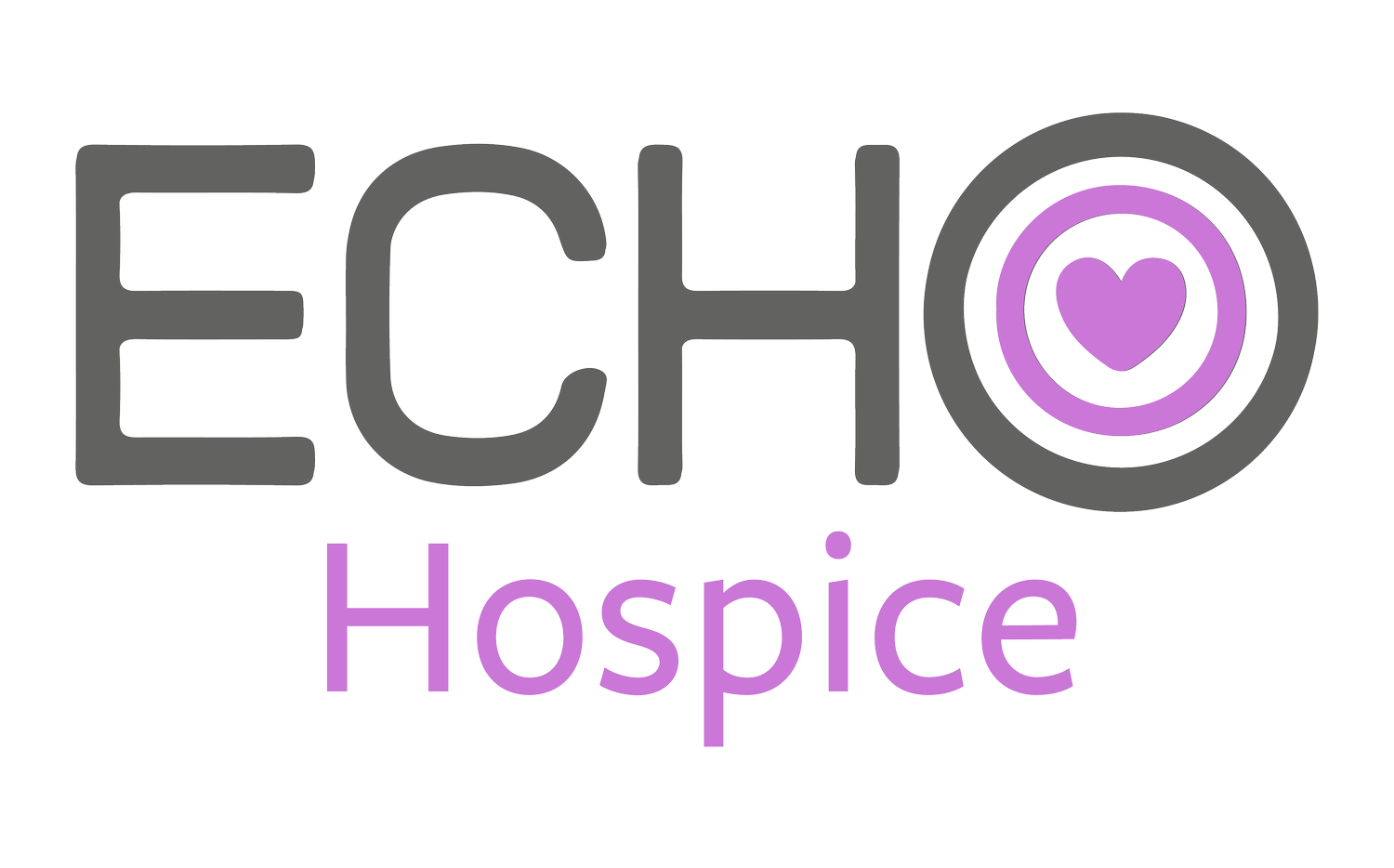FAQs
What is hospice?
Hospice is a type of end-of-life care that focuses on providing comfort, support, and dignity to those in the final stages of a terminal illness. It is not a place, but instead a type of care provided in the home or in a hospice care center. Hospice care is designed to help both the patient and their loved ones come to terms with their situation and make the most of their remaining time together. Echo Hospice services include physical, emotional, and spiritual support, pain and symptom management, and bereavement support.
What is covered under hospice?
Hospice care is a comprehensive approach to providing comfort and support for those with a terminal illness. The focus is on managing symptoms and providing emotional and spiritual support for the patient and their family. Hospice care also provides assistance with tasks such as errands, household chores, and meal preparation.
Who pays for hospice?
Echo hospice care has no out-of-pocket expenses to the patient or family. Hospice is a covered benefit under Medicare and most insurance plans.
Can I ask for hospice?
Absolutely! Hospice care is an important and valuable service for those facing a life-limiting illness. You can start by talking to your doctor or other healthcare providers about what options are available to you. They can provide information about hospice services available in your area, and help you make the best decision for your situation. Additionally, you can reach out to your local Echo Hospice location to get more information and assistance.
Is hospice constant care?
Hospice care is not necessarily constant care. Hospice care is specialized medical care for individuals facing a terminal illness. It focuses on providing comfort and support to the patient and their family, rather than treating the illness. Hospice care is usually provided in the patient's place of residence, but can also take place in a hospice facility or hospital setting. This care typically involves a team of professionals who provide physical, emotional, and spiritual support. The care is tailored to meet the needs of the patient and may include physical, occupational, and speech therapies, as well as social and psychological support. The care may be provided 24 hours a day, or it may be intermittent depending on the patient's needs.
Where do patients receive hospice services?
Hospice services are usually provided in the home of the patient, either in their own residence or in the residence of a family member or close friend. In some cases, hospice care may be provided in a hospital, nursing home, or another long-term care facility.
What are hospice “levels of care?”
Hospice care typically consists of four distinct levels of care. These are:
Regular Home Care - This is the most common level of care, and it involves care provided in the patient's home. It includes the patient's primary care physician, home health aides, nurses, and other professionals providing care.
Continuous Home Care - This level of care is used when the patient's condition requires more care than can be provided during regular home care. It is typically used for a short period of time, such as a few days.
Inpatient Care - This is a higher level of care and involves the patient being admitted to a hospice facility or hospital for a short period of time.
Respite Care - This is a short-term care option, typically for five days or less, that allows the patient's regular caregiver to take a break.
Hospice care is tailored to meet each patient's individual needs, and the levels of care may vary depending on the patient's condition.
What if a patient’s health improves while in hospice care?
If a patient's health improves while in hospice care, it can be a cause for celebration! The primary focus of hospice care is to provide comfort and support for individuals facing a terminal illness, so the fact that their health is improving is a testament to their resilience and strength. It is important to remember that the patient's prognosis and quality of life are the most important factors in determining the best course of treatment. The Echo Hospice care team will work with the patient and their family to evaluate their options and come up with a plan that is tailored to the individual's needs.
What can I expect from a hospice team’s visit?
An Echo Hospice team visit typically includes a team of healthcare professionals such as nurses, social workers, home health aides, bereavement counselors, and spiritual care providers. The team provides physical, emotional, and spiritual support to patients and their families. They can provide pain and symptom management, help with end-of-life decisions, and provide practical assistance with activities of daily living. They can also provide emotional support, counseling, and help with bereavement and grief. The team will work with you and your family to develop a plan of care that best meets your needs.
Do state and federal reviewers inspect and evaluate hospice agencies?
Yes, both state and federal reviewers inspect and evaluate hospice agencies. The state review is conducted by a state agency or the federal Centers for Medicare & Medicaid Services (CMS). The review focuses on compliance with state and federal regulations related to hospice services. The review includes a review of the agency's policies and procedures, patient care, and the quality of care provided. The review also includes a review of the agency's records, documents, and other information related to the provision of hospice services. The federal review is conducted by CMS and includes an evaluation of the agency's compliance with federal regulations and requirements. The review includes a review of patient records, documents, and other information related to the provision of hospice services. The review also includes a review of the agency's policies and procedures, patient care, and the quality of care provided. Echo Hospice is proudly certified through the Accreditation Commission for Healthcare (ACHC).
